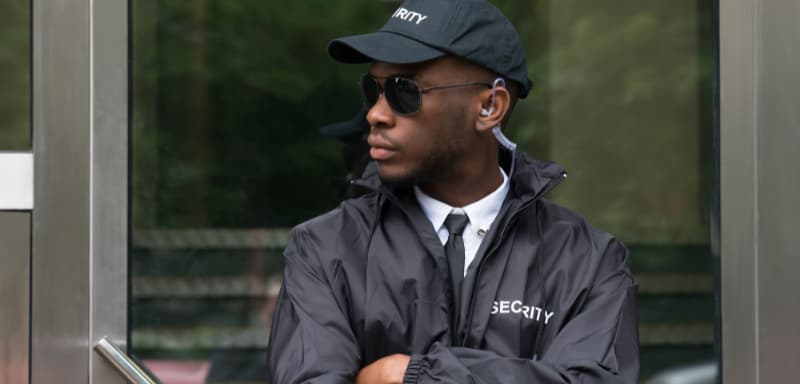Employment Tips
How to Follow Up After an Interview for Best Results
Following up professionally can help you stand out. Get practical tips on timing, wording, and making a lasting impression.
Advertisement
Stay Professional. Stay Polite. Stay Memorable!

Following up after an interview is an important step that shows your interest and professionalism. The best way to follow up is by sending a simple thank-you email that reminds the interviewer of your conversation and expresses your continued enthusiasm for the role. This helps keep you fresh in their mind without being pushy.
Your follow-up should be clear, polite, and brief. Mention something specific you talked about during the interview to make your message feel personal. Ending with a friendly note like “looking forward to hearing from you” can leave a positive impression.
Knowing how and when to follow up can improve your chances of moving forward in the hiring process. This article will guide you on what to say, when to send your message, and how to keep it professional.
Timing Your Follow-Up
Sending your follow-up message at the right time shows you’re respectful of the employer’s process while also keeping your name top of mind. A well-timed message can be the difference between being remembered or forgotten.
You will be redirected to another website
You’ll receive messages for less than 1 week, with a maximum of 1 message per day. You can unsubscribe anytime by replying STOP. By submitting this form, I confirm that I am 18+ years old and agree to the Privacy Policy and Terms and Conditions. I also provide my signature, giving express consent to receive informational messages via automated emails, SMS, MMS text messages, and other forms of communication. Message frequency may vary as part of our good-faith effort to respond to your inquiry. Message and data rates may apply. Text STOP to cancel. I understand that my consent to receive communications is not a condition of purchase and that I may revoke my consent at any time.
When to Send Your First Follow-Up
Your first thank-you email should be sent within 24 to 48 hours after the interview. This shows that you’re still thinking about the opportunity and value the time the interviewer gave you. The message doesn’t need to be long — just a warm, clear note of thanks and a reminder of your enthusiasm.
After your first message, wait at least one full week before reaching out again if you haven’t heard back. Employers often need a few days to review candidates and make decisions.
How Long to Wait Between Follow-Ups
If no response comes after your second message, give it at least five more business days before following up again. After two or three messages with no reply, it’s usually best to move on and continue with your job search elsewhere. Being patient and professional helps protect your reputation.
Knowing When to Let Go
There are times when no reply is the reply. If you receive a clear “no” or feel that repeated messages are going unanswered, it’s okay to stop. Keep your energy focused on new opportunities. You want to stay persistent — not pushy.
Crafting a Strong Follow-Up Message

Writing a good follow-up message takes thought. You want to sound sincere, interested, and professional — not repetitive or robotic. Here’s how to structure your message to leave a strong impression.
Make It Personal
Start by greeting the interviewer by name and mentioning the date of your interview. Refer to the job title and one detail from your conversation — maybe a shared interest, company value, or something about the role you discussed.
This small effort shows you were paying attention and helps you stand out.
Show Appreciation
A good follow-up starts with gratitude. Thank the interviewer for their time and for sharing insights about the role or company. Be specific if possible — for example, “I appreciated learning more about your team’s customer service approach.”
This shows maturity and respect.
Reinforce Your Interest
Let them know you’re still excited about the opportunity. Reaffirm that the position is a good fit for your skills and career goals. Mention a strength or experience that makes you confident you’d succeed in the role.
Keep it short — one or two lines is enough.
Add Something Meaningful
If you forgot to mention something important during the interview, this is your chance. You can include a short note about an additional skill or experience that supports your application. Or you can ask a thoughtful question that shows your continued interest.
This keeps the conversation open and positions you as someone who’s thinking ahead.
Choosing the Right Way to Follow Up
Most of the time, email is the best way to follow up. It’s professional, allows the employer time to respond, and leaves a written record. But depending on your relationship with the interviewer, other options can work too.
Email vs. Phone Call
Use email as your first follow-up unless the interviewer clearly encouraged a phone call. Emails are less intrusive and easier to manage.
If a phone call is appropriate, keep it brief and respectful. Call during working hours, avoid lunch or late afternoons, and be ready to leave a short, polite message if there’s no answer.
Using LinkedIn Professionally
If you don’t have the interviewer’s email, or you want to strengthen your connection, LinkedIn can be useful. You can send a short message thanking them and restating your interest.
Just be sure your tone stays professional. Don’t use LinkedIn for repeated follow-ups — one polite message is enough.
Mistakes to Avoid When Following Up
Sometimes the way you follow up can hurt more than help. Here’s what to avoid:
Don’t Overdo It
Two follow-ups is usually enough. Sending multiple messages in a short time can seem impatient. Avoid calling or messaging on social platforms unless you’ve been invited to.
Give the company space to finish their process — if they’re interested, they’ll get back to you.
Don’t Be Generic
Avoid sending a copy-paste message that doesn’t mention the job title, the company, or the people you met. A generic message feels lazy.
Instead, show that you cared enough to reflect on the conversation and make your note personal. It shows you’re serious about the role.
A Good Follow-Up Can Make the Difference
Sometimes a well-written follow-up message is what sets you apart from another candidate. It shows you’re thoughtful, motivated, and committed to the opportunity.
Even if you don’t get the job, following up the right way leaves a strong professional impression. And if you do? It may be your message that helped tip the decision in your favour.
Stay calm, stay polite, and stay ready. Your next opportunity could be just one message away.
Trending Topics

How to Find Jobs Near Me Without a Degree: Jobs You Can Get Right Now
Looking for jobs near you without a degree? Learn how to find entry-level work in South Africa using local job boards, networking, and more.
Keep Reading
Best Job Search Websites in South Africa for Career Opportunities
Job hunting doesn’t need to be hard. Discover the best local and industry-specific websites to land your next role in South Africa.
Keep Reading
How to Ask for a Job in Person with Confidence and Respect
Make your first impression count. This guide shows how to walk in, speak up, and ask for a job face-to-face without fear.
Keep ReadingYou may also like

SAYouth: Learn How to use this Free Job Platform
Learn how to use SAYouth.mobi to find free jobs, internships, and training in South Africa. No data needed and open to all youth aged 15–34.
Keep Reading
How to Improve Communication Skills for Stronger Relationships
Clear, confident communication changes everything. Discover easy steps to improve how you talk, listen, and relate — at work and at home.
Keep Reading
How to Become a Security Guard: A Guide to Start Your Career
Want a stable job in security? Find out how to get trained, licensed by PSIRA, and start working as a security guard in South Africa.
Keep Reading